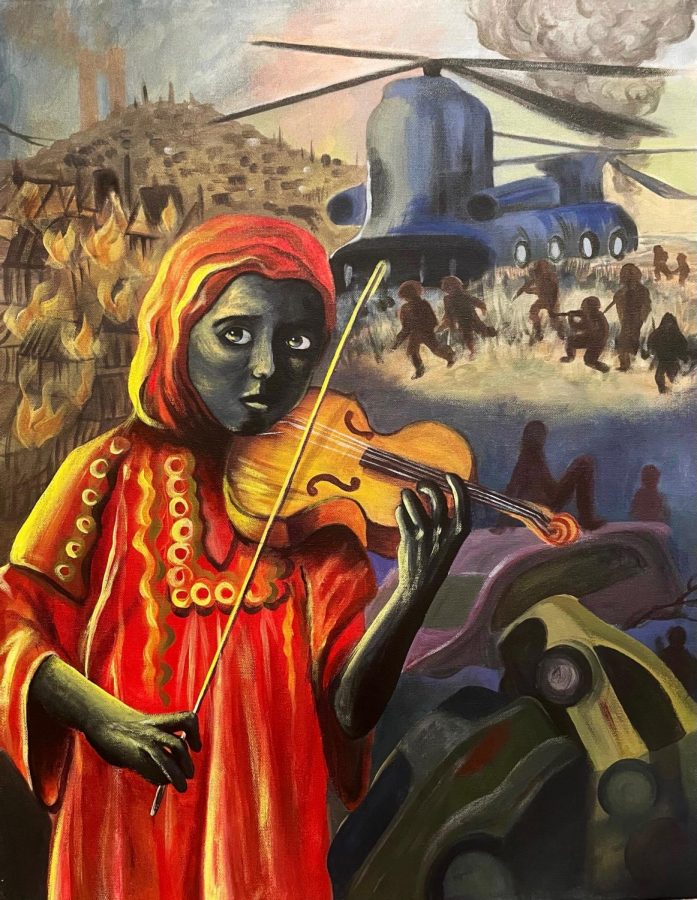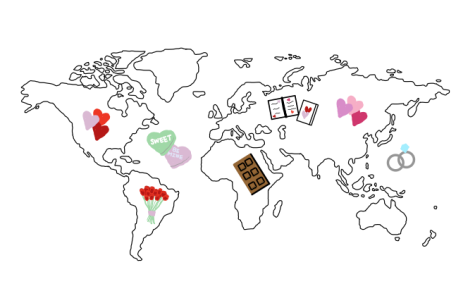Taliban takes over, plans for new regime
On Aug. 15, the Taliban grasped control of the capital of Afghanistan, Kabul, the last city not taken over by militants after President Biden “decided” to withdraw U.S. troops.
The Taliban seized Bagram Air Base and began emptying the Parwan prison which had roughly 5,000 to 7,000 prisoners, mostly Taliban and al Qaeda fighters. With these people, the Taliban made a lot of battlefield advances and got the entire nation under their control.
The week before, the Afghan military was outnumbered by the Taliban and lost Kandahar and Herat, which are the second and third largest cities in Afghanistan. The Taliban also took one strategic town that has one of four main roads to Kabul called Pul-e-Alam.
Before this, they took control of Ghanzi, around 95 miles away from Kabul, and about 5,000 American troops went there to help with evacuations. Britain and Canada also hurried troops into Kabul and Ghazni to help with evacuations, as well.
“If I had a family member in Afghanistan, I would feel very worried and concerned about their well-being and security,” said senior Christine Chen.
The State Department repeatedly told U.S. citizens that they should leave and vacate Afghanistan immediately because their ability to help and assist them was immensely limited due to security concerns.
President Biden has said that he does not regret withdrawing American troops from Afghanistan. He said that the United States has spent over $1 trillion dollars over the past 20 years and that over 300,000 Afghan forces had been equipped with modern machinery. He says the Afghan leaders needed to come together and fight for themselves and for their nation.
However, the Taliban have made advances beyond the battlefield. For example, they have decided that Afghan universities will be segregated by gender, and that they will have a new dress code. They also will separate girls and boys in primary and secondary schools. But now, all women will be required to wear hijabs at all times according to Mr. Abdul Haqqani, the Afghan Higher Education Minister.
There will also be restrictions on the subjects being taught in universities and in primary and secondary schools. According to the newly installed minister, the courses will be reviewed to “create a reasonable and Islamic curriculum” in line with the historical and national values, and competitive with other countries.
Many women have expressed their concerns about what will happen to women and girls in Afghanistan. Nobel Peace Prize winner Malala Yousafzai said she is worried about the safety of females in the country and that they will not be able to have full rights for education anymore. Activist Pashtana Durrani said that what the Taliban say and what they actually put in practice very different. In Herat, girls were not able to go to their universities and those in Kandahar, were asked to go back home and to ask for male relatives to fill their positions at work.
“This is unfortunate since women’s rights have grown a lot within the past 10 years,” said International Program Director Austin Bellino. “Women have been able to educate themselves, play sports, and find opportunities to lead and grow without men. I hope the Taliban will continue to see women as important members of their society, since Afghanistan needs to be rebuilt due to all the wars and issues in the past. I think the Taliban will limit the amount of public roles that women play, so positions of power might be taken away.”
Currently,Taliban control is impacting the quality of life throughout Afghanistan. As students, it is important to contact the state’s representatives to ask for the United States to work with other nations to pressure the Taliban to act in humane and democratic ways.
Your donation will support the student journalists of Saint Viator High School. Your contribution will allow us to purchase equipment and cover our annual website hosting costs.








